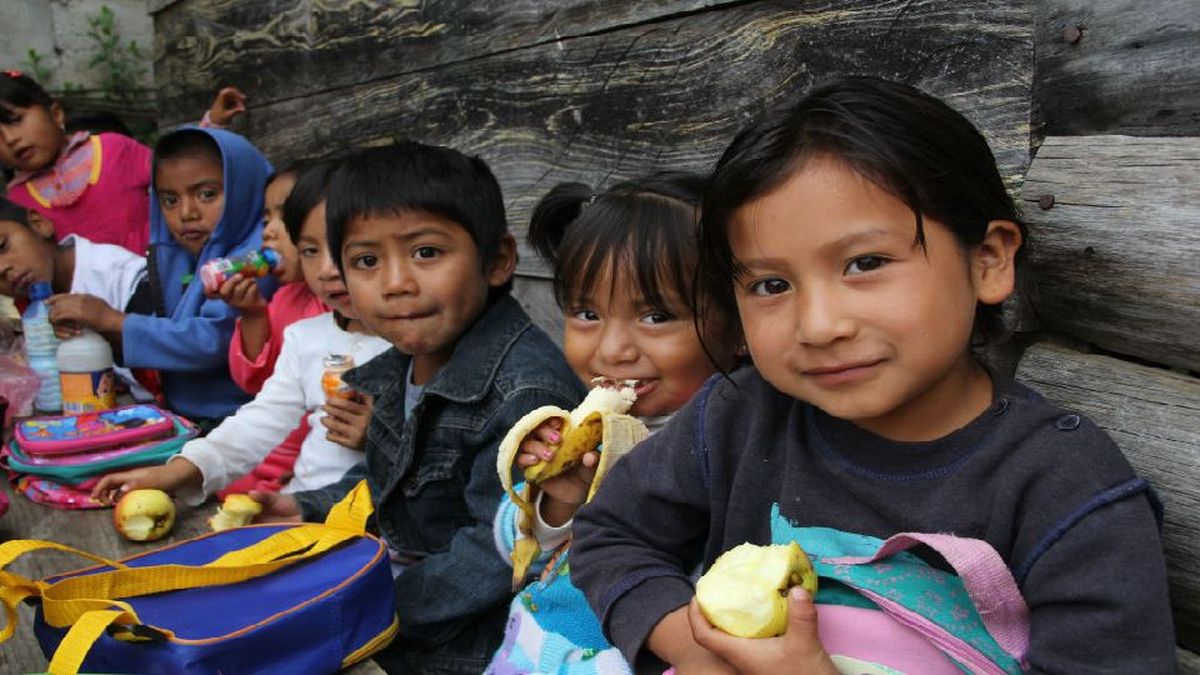Some 10 million Argentine girls and boys “eat less meat and dairy compared to last year due to lack of money”. All this, in a context in which, furthermore, the income of almost half of the households with minors They are not enough to cover basic expenses for food, health and education. In families, the consumption of vegetables and fruits also decreased (58%), and only the intake of noodles and flour increased (24%).
The data comes from the eighth survey of households with children and adolescents, a nationwide measurement that UNICEF Argentina has carried out uninterruptedly since 2020 and which was published in the last few hours.
The report further maintains that “more than a million girls and boys stop eating a meal (breakfast, lunch, snack or dinner) due to lack of money“. Likewise, it emphasizes that, in seven out of ten homes where this happens, the person in charge is employed and, within them, more than 60%, informally.
At the same time, three out of ten families had to resort to a loan or deposit to buy food and more than half of the households -where almost 7 million girls and boys live- had to stop buying food due to lack of money.
The crude UNICEF report
“Faced with insufficient income, families go into debt, stop buying nutritious foods or medicines, which significantly worsens the quality of life of their members,” he says. Luisa Brumana, Representative of UNICEF Argentina.
And he adds that “These data on the socioeconomic situation seek to contribute to decision-making for the development of policies that allow these households to escape poverty, in accordance with our mandate of cooperation with national and provincial States.”
The report reveals that, in nine out of ten families, income is not enough to buy the same amount of basic products as in 2023, while in 82%, income cannot cover specific expenses for girls and boys, such as school supplies. , transportation, clothing and footwear.
Access to health is truncated
In this context, 23% of households stopped purchasing medicines; by 32%, medical and dental check-ups were reduced; and in 41%, savings are used for current expenses. Furthermore, in the middle sectors, 9% of families had to disaffiliate from prepaid or change their children to schooland the use of credit cards for food purchases increased.
These restrictions take place in a context in which more than half of households access some income transfer policy. In this sense, 93% of the people surveyed believe that the social protection programs provided by the State are necessary, but in 68% of the households that receive these benefits, the money is enough for less than half of the expenses. .
“The survey data show the difficulties that households with children have in generating sufficient income and, in this way, accessing food and meeting basic current expenses. This occurs in a context where the budget items of the National Administration aimed at children and adolescents show a drop of 25% in real terms in the first 5 months of 2024 compared to the same period in 2023,” he indicated. Sebastian Waisgrais, specialist in Social Inclusion and Rights Monitoring at UNICEF Argentina.
Childhood Schools School Children
These restrictions take place in a context in which more than half of households access some income transfer policy.
Ignacio Petunchi
In this regard, the updated analysis of the 2024 national budget with a focus on children, carried out by UNICEF, reflects that in the first five months of the year the AUH has been particularly protected with an increase of 15% in real terms compared to that accrued in the same period 2023. On the contrary, the rest of the items that make up the transversal children’s budget of the National Administration show, in general terms, year-on-year falls, in some cases significant.
“This makes it necessary, once again, to call for prioritizing the resources allocated to children. The increases in the Food Support of the 1000 Days Plan of 41.5% and of the Food Benefit of 8.6% recently granted, are going in the right direction to protect income in vulnerable contexts“Waisgrais added.
This eighth survey is part of a series of measurements and reports carried out by UNICEF on the living conditions of girls and boys in the country. In compliance with its work plans agreed with the National Government, and based on the mandate established in the Convention on the Rights of the Child, the organization has been continuously monitoring the situation of children and adolescents since 2016, which includes: the prevalence and analysis of the determinants of monetary and multidimensional poverty, the budgetary efforts made by the national government and the provinces in policies aimed at girls, boys and adolescents, and the coverage and protection capacity of the main child protection policies. income directed to households with girls and boys in situations of greater social vulnerability.
Source: Ambito




